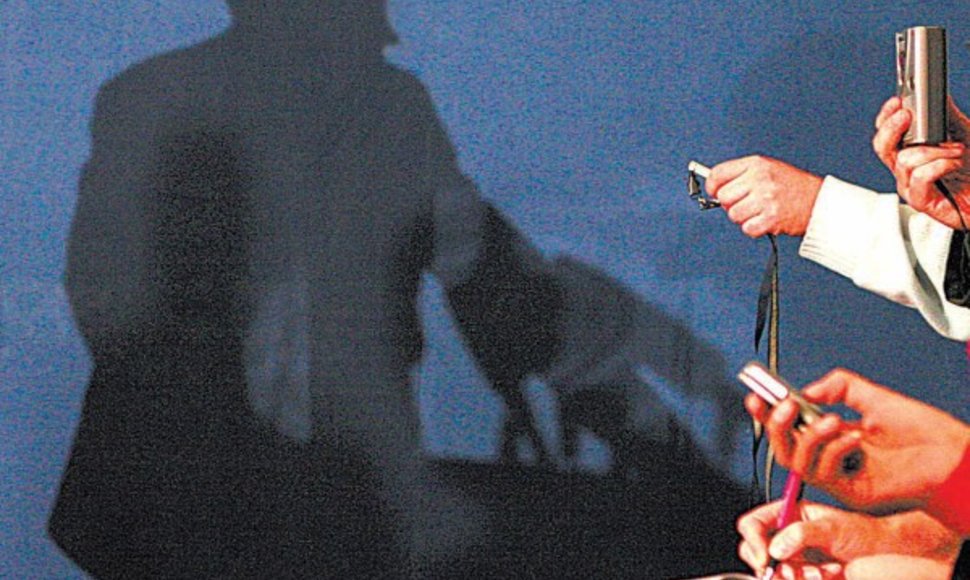Unlike in many other countries, in Lithuania government plays a massive role in the PR market. It is estimated that contracts with public institutions account for over a half of the market's turnover. The importance of the state in the business has become even more pronounced during the crisis, when many private businesses had to slash their marketing budgets.
PR experts note that politicians often know in advance where and how many articles about them are to be published – and which media channels deserve to be treated with direct access to state coffers. Those PR specialists who purposefully refuse to work with public projects say that private businesses are more result-oriented, while politicians do not shy away from spending public funds on personal self-promotion.
Hard times
“The situation is complicated indeed. Communication and public relations services are closely intertwined with the overall economic situation of the country. As a leader in the business, we will certainly manage to ride the wave of growth in the market. We have a most professional team for that,” Mindaugas Ardišauskas, CEO of PR company Viešųjų Ryšių Partneriai tells 15min.
So far, however, catching the wave of growth has been a tricky task. According to data available to 15min, Viešųjų Ryšių Parneriai owes as much as 200 thousand litas (70 thousand euros) for office rent. A few months ago, similar squeeze troubled another PR major, Publicum.
Ardišauskas confirms that big Lithuanian PR companies face considerable financial hardship and even struggle when it comes to paying office rent. He does not, however, believe the situation is hopeless: “The communication business is not easy these days, but talks about impending doom are out of touch with reality.”
According to Ardišauskas, financial reports show that all PR agencies have been more or less hard-pressed after 2009: “Not a single agency shows consistent growth. Their performance fluctuated every year, depending on particular projects and public sector contracts they landed – the latter inflate the turnover considerably.”
He notes that Lithuania's current GDP growth is mostly fuelled by exports, but exporters do not require Lithuanian firms' communication services. “And that is our great regret. The situation will improve once domestic consumption picks up. When that happens, people will care less about special discounts and prices than producers' reputation and other things,” Ardišauskas expects.
Viešųjų Ryšių Partneriai managed the PR campaigns of Visaginas Nuclear Power Plant (NPP) and EuroBasket 2011. In early 2013, Visaginas NPP terminated its 4.58-million-litas (1.3 million euros) contract with the agency, something the power plant was ordered to do by the Public Procurement Office, since commissions exceeding 1.45 million litas require a public call for tenders.
Luscious contracts from the state
“We have a very curious situation in Lithuania. Our agency is part of an international network with branches throughout the EU, so we can make comparisons. We are one of the few countries where so much money in the communication market goes through the state budget, i.e., through politicians,” says Linas Kontrimas, board member at the Public Relations Association and head of PR Service/Edelman Affiliate.
According to him, the biggest-ever public contract in Estonia totalled about 300 thousand euros (million litas). Meanwhile in Lithuania, the sums are far more luscious. “It is not a bad thing. It creates jobs, but there's also the issue of freedom of the market and competitiveness. I can't quote precise figures, because not all agencies are members of the association, but people do talk and they say that, at times, the share of public money in the market is 40 to 60 percent. That means massive cash flows and huge contracts,” he says.
Mykolas Katkus, chairman of the board at Viešųjų Ryšių Partneriai, cautions against confusing money handled by PR agencies but paid to media outlets, and their own earnings: “What matters to us is how much we make from our own consulting services. If you look at it like that, then the share of public money in our earnings is no more than 20 percent.”
He claims that the main income source of his company is private business, while the last 2-3 years did indeed bring more public contracts. “There are projects that we're interested in. At the moment, these are the euro adoption or the renovation (of residential housing),” he says.
According to Ričardas Jarmalavičius, director of Publicum, the two public projects lure many a market player: “It is not only to do with money, but also professional ambition.”
Publicum already handled euro adoption campaign half a decade ago. Back then, however, Lithuania failed to meet Maastricht criteria and was refused euro zone entry.
Queues at publicity tenders
Jarmalavičius says that public contracts do matter to PR agencies – evidenced by the fact that they actively compete even for relatively low-value projects. Not only do agencies take part in public procurement competitions, but the losing ones also challenge the results in courts. Many projects get stuck as a result.
At the moment, the government has offered PR contracts linked to Lithuania's presidency over the EU Council.
Darius Gudelis, owner of PR agency VIP Viešosios Informacijos Partneriai, tells 15min that his company has upped the share of state commissions in its portfolio lately, by landing lowest-bidder contracts. “It is good for the turnover, but profit margins are minimal,” he says.
According to Gudelis, three fourths of the money that public institutions spend on PR come from EU coffers. As EU member states are locked in a debate over the 2014-2020 financial perspective, PR professionals expect even bigger publicity budgets for EU projects. “Financial flows will grow. The influence of public money for this sector will be great,” he believes.
The performance of Lithuania's major PR agencies varied last year. Jarmalavičius says that Publicum saw its turnover grow almost two-fold, but that did not translate into equally impressive growth in profits. The turnover of VIP Viešosios Informacijos Partneriai grew 70 percent, totalling 7.7 million litas (2.2 million euros). Viešųjų Ryšių Partneriai saw its turnover drop by 14 percent, to 10.3 million litas (3 million euros).
Guarding reputation
PR agency Nova Media does not work with government projects. The firm's senior partner Arijus Katauskas explains the choice thus: “We provide services for business organizations and stay away from ministries and politicians. When businesses choose their partners, they consider how to achieve their goals, and then decide who to work with accordingly. State institutions normally tell you: we want that many publications in these media outlets. I always wonder: So you have already spoken to a PR agency which analysed the market and advised how many articles to publish and where? Politicians often confuse maintaining a dialogue with the public and advertising,” Katauskas thinks.
The PR specialist believes that politicians, who are the ones making decisions on the distribution of money in the market, do not always respect ethical limits. “A politician mostly cares about being visible and having the media talk about him. I have had private conversations with politicians where I had to dissuade them from their convictions of how one deals with the media. That is why we don't work with politicians,” he says.
According to Katauskas, politicians often want to distribute public funds according to their personal whims and that poses a serious threat: “I hope this will disappear. It has a distorting effect on both the media and the public relations business.”













